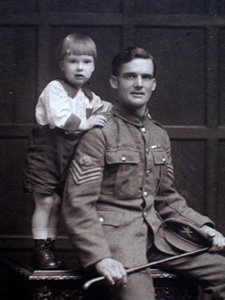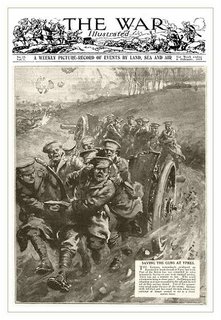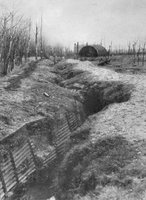
Found an interesting resource at the Sheffield Central Library/Local Studies Center that discussed the ways the Homes handled problem children. From
Sheffield Union: The Scattered Homes for Children Historical Sketch, presented by the Children’s Homes Committee to the Sheffield Board of Guardians, 20th March 1907, Sheffield Independent Press LTD:
Other Methods of Dealing with the Children. . . Four other methods are in use, viz – a) boarding out; b) emigration; c) training ships for boys; and d) special Homes and training institutions. Walter always speculated that older brother Harry was sent to Canada after he ran away from the Homes. Haven't been able to verify this, but we're still working on it:
b) Emigration – Within the last five years some 44 children have been emigrated to Canada, either through Dr. Barnardo’s Homes or the Catholic Emigrating Association (Father Berry’s Homes), and in reference to the large majority of these children we have encouraging reports. Wonder if Harry was among the 44?
Walter and Bert, of course, were sent to the training ships - Walter to the "Clio" and Bert to the "Southampton" (picture above is of the Southampton boys):
c) Training Ships – In the case of boys who appear to require a more rigorous discipline than our Homes provide, and especially with those given to absconding, we have found training on ship-board a useful expedient. Within the same period of five years six boys have been sent to the “Southampton,” on the Humber, four to the “Clio,” at Bangor, and one to the “Wellesley” on the Tyne. The authorities of these ships undertake the responsibility of placing the boys out on their discharge. Still hard for me to imagine Walter as requiring a "more rigorous discipline" since he was the model of respectability when I knew him.
 The next few weeks are going to be very busy for me, as I prepare for a new job and move from Atlanta to New York City. Alas, my writing and research for my book about Walter has had to take a back seat to getting things settled in the midst of great change.
The next few weeks are going to be very busy for me, as I prepare for a new job and move from Atlanta to New York City. Alas, my writing and research for my book about Walter has had to take a back seat to getting things settled in the midst of great change.


